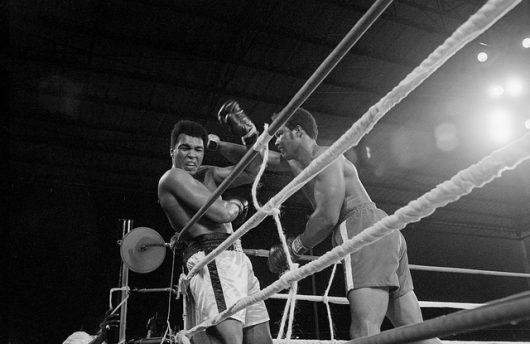Patricia Arquette and Mohammad Ashour Conferred 2017 Muhammad Ali Humanitarian Award
 Actor, writer and activist, Patricia Arquette, received a 2017 Muhammad Ali Humanitarian Award on September 23, 2017. Arquette received the Lifetime Achievement award.
Actor, writer and activist, Patricia Arquette, received a 2017 Muhammad Ali Humanitarian Award on September 23, 2017. Arquette received the Lifetime Achievement award.
Arquette created the charity, GiveLove, a U.S. based skill-training non-governmental organization (NGO) dedicated to the instruction and promotion of Ecological Sanitation (EcoSan) and compost sanitation. Arquette founded GiveLove to assist after the 2010 earthquake in Haiti. The magnitude 7.0 earthquake occurred approximately 16 miles west of Port-au-Prince, Haiti’s capital.
GiveLove works in emergency and development contexts to introduce low-cost, decentralized sanitation systems based on container-based sanitation and human manure composting approaches. Specializing in dry toilets, known as, “compost toilets,” GiveLove’s industrial partners operate in areas with high demand and dry areas to provide safe options for latrines dug in challenging environments.
GiveLove has implemented training programs in Haiti, Nicaragua, Colombia, Uganda, Kenya, India and the United States. The charity partners with NGOs, local community associations, schools, youth groups, universities and governments. GiveLove provides technical skills training, program design and support, staff training, monitoring and evaluation and design consultancy. GiveLove also instructs local organizations to advance sanitation in high-risk communities. Arquette’s company trains licensed sanitation builders, as well as district technicians, to apply and manage projects.
The Center bestowed a second 2017 Muhammad Ali Humanitarian Award upon Mohammad Ashour.
During his acceptance speech for the Conviction Principle Award, Ashour promoted universal healthcare and condemned racism. Ashour’s enterprise, Aspire, operates in Ghana and the United States.
Aspire raises food-grade crickets on a commercial scale and actively works to normalize the consumption of insects in the western world. Ashour’s company, based in Austin, Texas, created a massive farm to raise crickets used to make mainstream snacks. The Center honored Ashour with the 2017 Muhammad Ali Humanitarian Award for pursuing his goal to produce a high-grade source of protein, while also reducing the carbon and land footprint that stems from farming cattle. Crickets are a healthy source of protein and offset the harmful effects that come from the reliance on beef production.
At the onset, employees fed the crickets. However, this system proved inefficient and ineffective, as humans work during daylight hours and crickets are nocturnal. Aspire subsequently incorporated a robotic system that provides the ideal amount of food to the crickets. These adjustments to the cricket’s diet created a better product.
Inside Aspire’s newest building, a robot feeds millions of crickets 24 hours a day. This facility is a 25,000-square-foot research and development center. Aspire plans to duplicate this technology on an additional farm that is 10 times the size of the present plant. It’s a scale that Ashour believes will propel crickets as a mainstream food in the United States. For an insect’s diet to meet its sustainable promise of supplying protein without the carbon and land footprint of beef, Aspire must increase production, making cricket protein widely available and affordable. Mohammad Ashour believes Aspire’s endeavor will make that possible.
According to The Ali Center in Louisville, Kentucky, the 2017 Muhammad Ali Humanitarian Award honored and extolled the valuable contributions of people from around the world.
– Heather Hopkins
Photo: Flickr
